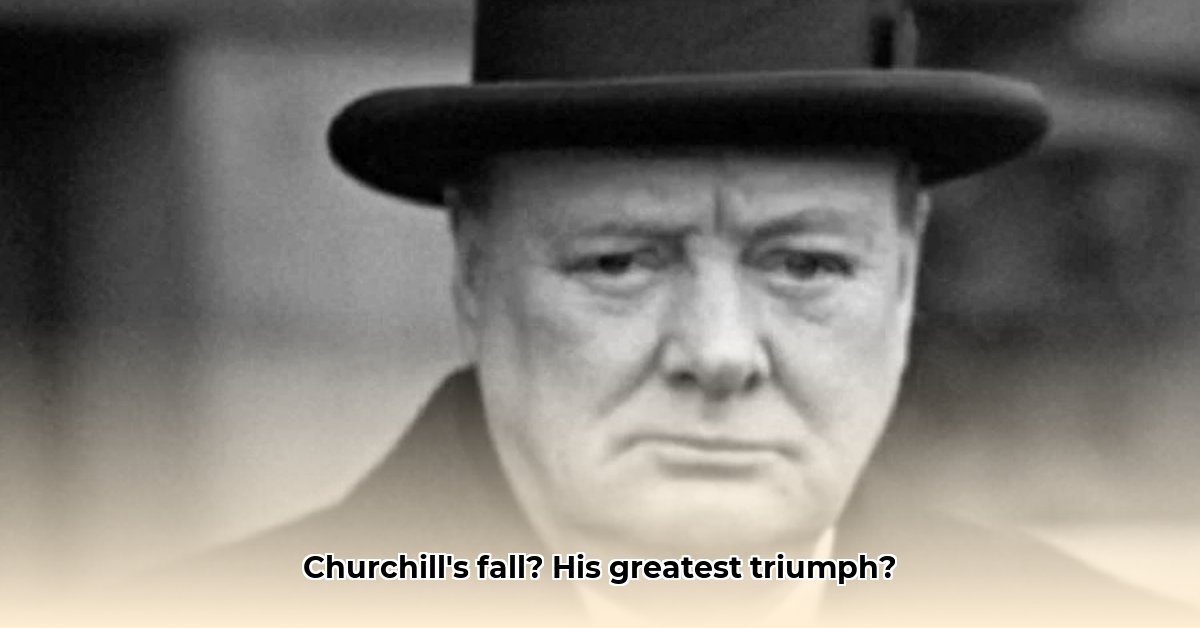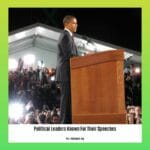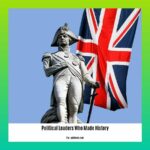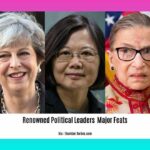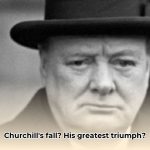Winston Churchill, a name synonymous with leadership and resilience, faced a decade of political isolation often referred to as his “Wilderness Years,” spanning from 1929 to 1939. This period was far from a quiet retreat; it was a crucible where his resolve was tested, and his warnings against the rising Nazi regime were largely ignored. To understand his productivity, see [genius routines](https://www.lolaapp.com/the-daily-routines-of-geniuses-throughout-history). This article explores the depths of those years, highlighting how Churchill leveraged his writing and oratory skills to alert the world to the impending danger, challenging the appeasement policies of his time. We delve into his strategies, contrast them with the actions of his contemporaries, and examine how this period of political exile ultimately paved the way for him to become the Prime Minister who steered Britain through World War II. It’s a compelling narrative of perseverance, visionary communication, and the arduous journey to becoming a legendary figure.
Winston Churchill’s Wilderness Years: A Decade of Dissension and Foresight
The years 1929 to 1939 were anything but a leisurely interlude for Winston Churchill. These “Wilderness Years” represent a transformative epoch, sculpting the character of the man who would lead Britain through its darkest hour. Imagine it as a decade-long proving ground for a future prime minister. Though absent from positions of power, Churchill remained a vocal presence, persistently cautioning against the looming menace of Nazi Germany. Initially, his warnings seemed to fall on deaf ears. He stood as a solitary voice amidst the political landscape, yet his alerts grew increasingly urgent as Neville Chamberlain’s policy of appeasement proved inadequate in curbing Hitler’s ambitions. Was Churchill a visionary ahead of his time? Undoubtedly, possessing a clarity of vision that surpassed most. His predictions, often dismissed as alarmist, proved to be disturbingly accurate.
Financial Struggles and Political Isolation
These years were far from halcyon days for Churchill. The Wall Street Crash of 1929 dealt a severe blow to his finances, compounding the stress of his political marginalization. He found himself increasingly at odds with prevailing political sentiments, feeling increasingly alienated within his own Conservative Party. His relentless criticism of appeasement strained relations with many colleagues. Yet, adversity often serves as a catalyst for resilience. This period of struggle only fortified Churchill’s resolve.
The Indomitable Pen: Shaping Discourse Through Writing
Despite his exclusion from the political mainstream, Churchill remained remarkably productive. He penned numerous works – books on history and politics – each meticulously crafted to challenge the policy of appeasement. His literary output became a strategic weapon, influencing public opinion and permeating crucial political discussions. These writings served as a testament to his unwavering conviction and intellectual prowess.
An Uncomfortable Alliance: Churchill and the Conservative Party
Churchill’s relationship with the Conservatives during this era was complex and often strained. Despite being a prominent member, his outspoken dissent from the party line created considerable discord. His disagreements with party leaders mirrored broader divisions within the political landscape. While his warnings ultimately proved justified, they kept him on the fringes of power for many years. This intricate dynamic added layers of complexity to his political navigation.
The Munich Agreement: A Pivotal Moment
The Munich Agreement of 1938 marked a critical juncture. Chamberlain’s appeasement policy, culminating in this accord, proved disastrous. Churchill’s warnings, previously overlooked, suddenly gained terrifying relevance. This crisis exposed the flaws of appeasement and propelled Churchill back into the political spotlight, validating his long-held concerns.
From Outcast to Leader: The Ascent to 10 Downing Street
The gathering storm of war dramatically altered the landscape. Churchill’s persistent warnings and emphasis on national security were finally recognized as indispensable. As war became inevitable, the nation turned to the man who had spent a decade cautioning against the impending crisis. His appointment as Prime Minister in 1940 signified the end of his exile and the commencement of his most significant chapter. It was not merely a personal triumph but a testament to the nation’s recognition of his foresight.
Key Moments: Charting Churchill’s Course
| Year | Event | Significance |
|---|---|---|
| 1929 | Wall Street Crash; Churchill’s finances suffer | Exacerbated his political isolation and personal stress. |
| 1930s | Constant warnings about Nazi Germany | Initially dismissed, later acknowledged as remarkably prescient. |
| 1930s | Extensive writing and public speaking | Shaped public opinion through compelling rhetoric and unwavering conviction. |
| 1938 | Munich Agreement | Churchill’s warnings were tragically vindicated, leading to increased influence and credibility. |
| 1940 | Became Prime Minister | Marked a pivotal shift, reflecting the nation’s embrace of his vision and leadership. |
Churchill’s time in the political wilderness honed his resilience, sharpened his vision, and steeled him for the formidable challenges ahead. These were not years of inactivity but a period of intense intellectual engagement, political advocacy, and profound foresight. It was an era that defined not only his destiny but also the trajectory of British history. Scholars continue to analyze this pivotal period, uncovering new insights into Churchill’s motivations and actions. His “Wilderness Years” remain a captivating and multifaceted chapter in the life of one of history’s most distinguished figures.
Financial Constraints and Churchill’s Political Trajectory During the Wilderness Years
The decade spanning 1929 to 1939, famously known as Churchill’s “Wilderness Years,” marked an era of political opposition and relative obscurity. Concurrently, it was a time of intense activity profoundly influenced by his precarious financial circumstances. How did this financial hardship shape his political actions? The answer lies in a complex interplay between his unwavering convictions and carefully crafted political strategies.
The Burden of Debt and Investment Losses
The Wall Street Crash of 1929 inflicted significant financial losses on Churchill. His investments plummeted, leaving him burdened by substantial debt. This financial pressure became a constant companion throughout his wilderness years. He was compelled to rely on his writing and lecturing to sustain himself, a stark contrast to his previous financial security.
Writing as a Strategic Tool: Amplifying Political Influence
Churchill’s financial woes propelled him into prolific writing. It served not only as a means of generating income but also as a potent platform to disseminate his views on the escalating threat of Nazi Germany and the perils of appeasement. How did Winston Churchill’s financial struggles during his wilderness years influence his political actions? By necessitating a prolific writing career, it provided a powerful means to shape public opinion. He leveraged his literary talents to warn of impending disaster, bypassing the political establishment that largely dismissed his concerns.
The Art of Persuasion: Shaping Public Discourse
Churchill’s financial constraints did not diminish his political actions; instead, they molded them. He understood the importance of shaping public opinion to regain a prominent political role. His writing became a strategic instrument in this endeavor. His compelling pronouncements and meticulously researched arguments were widely disseminated, gradually shifting public sentiment against appeasement. His financial circumstances, paradoxically, compelled him to hone his persuasive skills, ultimately influencing key decision-makers.
Limitations and Compromises: Navigating Financial Realities
While Churchill’s financial difficulties spurred his writing and public speaking engagements, they also imposed limitations. His pressing need for income may have, at times, influenced his acceptance of engagements that might otherwise have been beneath his consideration. The necessity of supporting his family took precedence. However, this factor does not diminish the overall impact of his relentless warnings about Nazi Germany.
Cultivating Connections: Strategic Relationships
Despite his political isolation, Churchill maintained an extensive network of contacts. He astutely utilized this network, gaining insights and intelligence on international affairs and domestic politics, lending credence to his warnings. His financial situation did not impede this aspect of his political strategy. This network proved invaluable in his eventual comeback, providing a solid support system once he regained a position of power.
A Crucible of Leadership: Shaping Future Vision
Churchill’s “Wilderness Years” were more than just a period of political exile; they served as a crucible that significantly shaped his future leadership. His financial struggles, though undoubtedly challenging, proved to be a catalyst that propelled him into prolific writing and sharpened his focus on influencing public consciousness. It was a period of intense intellectual and political exertion, albeit constrained by his financial situation. His experience during this decade provided him with invaluable insight and strengthened his resolve.
Pivotal Aspects: Financial Hardship Shaping Churchill’s Wilderness Years
- Financial difficulties propelled Churchill into prolific writing, providing a platform to warn against appeasement.
- His financial struggles did not hinder his political actions; instead, they shaped his approaches and strategic thinking.
- The “Wilderness Years” ultimately served as a formative period, shaping his future leadership and resolve.
Churchill’s Literary Contributions and their Impact on Pre-War Public Opinion
Churchill’s literary activities preceding World War II significantly influenced public discourse and sentiment. His books and articles functioned as powerful instruments for disseminating his views and cautioning against the dangers of appeasement.
The Power of the Written Word: Early Works and Emerging Influence
Churchill’s literary endeavors began well before his political triumphs. His early works, such as The Story of the Malakand Field Force and The River War, were not mere narratives; they showcased his remarkable prose and astute observational skills. These books cemented his reputation as a skilled writer, extending beyond the realm of politics. Did these early successes lay the groundwork for his subsequent political influence? Undeniably. They established a formidable platform, a reputation for clear, engaging writing that proved invaluable when he sought to sway public opinion.
Forging Convictions: The Wilderness Years
The interwar period, often referred to as Churchill’s “Wilderness Years,” was characterized by political isolation. Yet, this era was far from a creative void. He continued to write prolifically, producing biographies (Lord Randolph Churchill), historical analyses, and journalistic pieces. These writings, some critically acclaimed, others less so, contributed to Churchill’s Writings and their Impact on Pre-War Public Opinion. His warnings about the rising threat of Nazi Germany, though largely ignored at the time, became increasingly urgent. He painted stark pictures of potential conflict and the imperative of preparedness. Were these warnings effective at the time? Not uniformly. They prepared the ground, planting seeds for future action.
The Evolution of Style and Unwavering Belief
As Churchill matured and his literary output expanded, some critics observed an evolution in his style. Some contend that his later historical works, while substantial, suffered from inconsistencies in quality. His reliance on research assistants is often cited as a contributing factor. However, regardless of stylistic variations, his convictions remained unwavering. His voice, whether expressed in elegant prose or more direct language, carried the weight of experience and a steadfast belief in what was right, permeating his writings during this period.
Shaping Public Sentiment: Influencing Political Discourse
While not always widely embraced, Churchill’s pre-war writings consistently challenged the prevailing appeasement policies. He provided a counter-narrative, warning of the dangers of complacency and underestimating Hitler’s ambitions. His passionate prose and undeniable eloquence created a platform for alternative viewpoints. Although he remained a minority voice for much of this time, his writings helped shape the debate and sustained the urgency of the threat. Did this ultimately influence public sentiment before the war? Indeed, even if the extent remains a subject of ongoing historical debate. Through his words, he subtly but steadily shifted the landscape.
A Lasting Legacy of Literary Contributions
Churchill’s literary output during his “Wilderness Years” extends beyond a chronicle of his political challenges. It was the very forge that shaped his future leadership. His words warned, educated, and rallied. They laid the groundwork for his later pronouncements of defiance and hope. Through his writings, he not only documented his time in the political wilderness but also prepared the ground for his ascent as a wartime leader. His literary legacy, with all its nuances, remains inextricably linked to his enduring political influence.
Churchill’s Interactions with the Conservative and Liberal Parties During the 1930s
Churchill’s political allegiances during the 1930s reflect the complex dynamics of British politics. His shifting affiliations, particularly between the Conservative and Liberal parties, provide insight into his evolving beliefs and strategies.
A Decade of Political Alignment: Exploring Shifting Ties
The 1930s, often regarded as Churchill’s “wilderness years,” raise the question: Was it a desolate period or a strategic retreat, allowing him to regroup and refine his political instincts? His journey during this decade vividly illustrates the complexities of Churchill’s Interactions with the Conservative and Liberal Parties During the 1930s. He wasn’t merely out of power; he actively navigated shifting political currents, recalibrating his strategies and solidifying his convictions.
Navigating Party Politics and Ideological Boundaries
Churchill’s political career was not a linear progression. In 1904, he famously crossed the floor, leaving the Conservatives to join the Liberals, a move driven by his staunch belief in free trade, which clashed with the Conservatives’ growing protectionist tendencies. However, this alliance was not permanent. By 1925, he felt the pull of the Conservative party once more. These shifts were not solely motivated by personal ambition but by principle and the prevailing political realities. This intricate dance between parties significantly shaped his political trajectory.
The Rise of Appeasement and Churchill’s Defiance: Ethical Considerations
The 1930s witnessed the ominous rise of appeasement. While many within his own party sought to accommodate Hitler, Churchill remained steadfast, his warnings resonating with increasing urgency as the threat loomed larger. This defiant stance, even amid political isolation, showcased his unwavering commitment to his beliefs. This period wasn’t merely a hiatus; he was actively working, writing, and speaking, consistently refining his message and building a case for a stronger defense against fascism.
Perspective from Isolation: Impact and Strategy
Was his relative isolation detrimental, or did it inadvertently benefit him? His “wilderness years” served as a crucible, forging his steadfast conviction and strengthening his arguments. Distance from the political fray offered a unique perspective, enabling him to formulate a potent critique of appeasement. Whether this isolation allowed him to formulate his arguments with greater effectiveness remains a subject of historical debate.
Amplifying His Voice: Churchill’s Writings
His prolific writing during this period served not only as a means of financial support but also as a way to keep his voice heard amid the political cacophony. His books and articles disseminated his views to a broad audience. He effectively used his writing to prepare the groundwork for future action, shaping public opinion and building his case against the prevailing policy of appeasement.
Reassessing the Wilderness: A Necessary Phase?
Ultimately, Churchill’s “wilderness years” were far from barren. They represented a time of intense intellectual engagement, political recalibration, and unwavering commitment to his principles. Was this period a decline or a necessary step toward his monumental role in World War II? The answer, like Churchill’s political journey, is more nuanced than a simple binary choice.
- Unlocking Flight: The Wright Brothers’ Engineering Triumph:A Meticulous Process - August 4, 2025
- Churchill’s Wilderness Years: From Exile to Prime Minister - August 4, 2025
- Unlocking Time’s Secret: The Arrow of Time, Past vs. Future Insights - August 4, 2025
